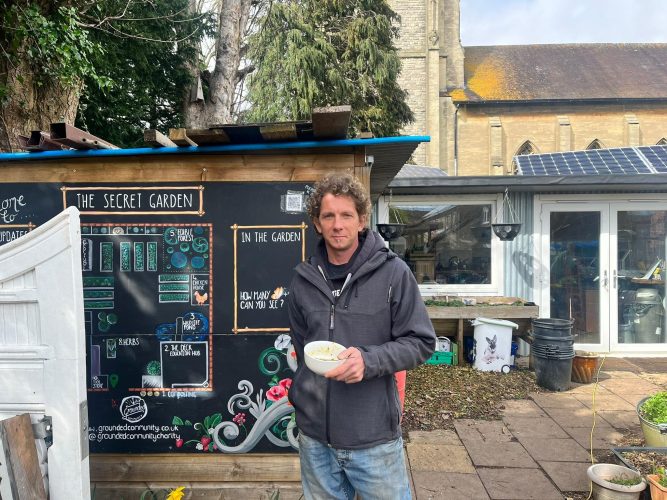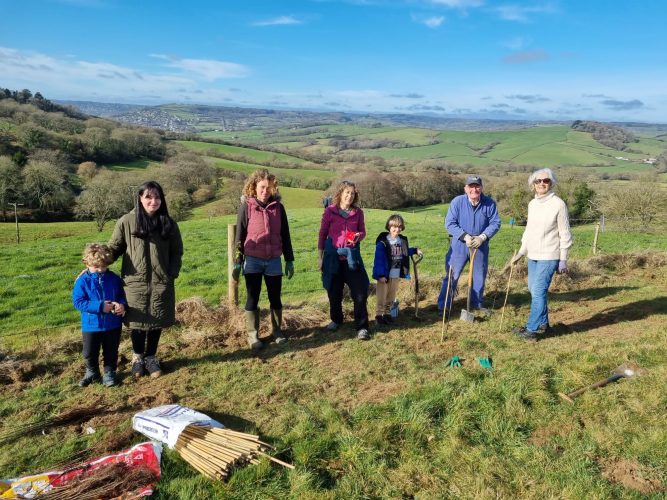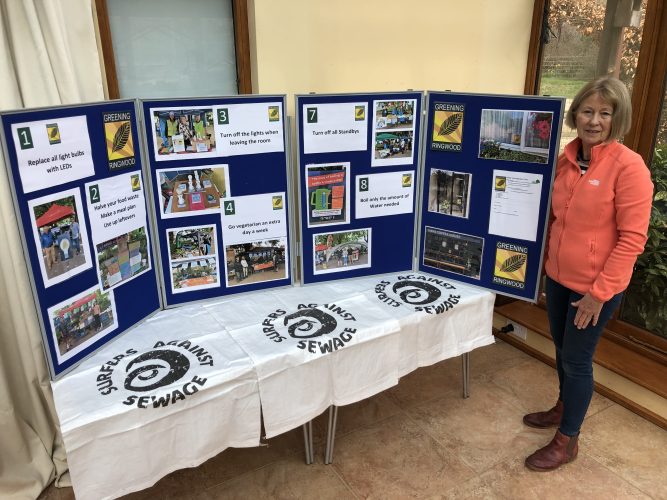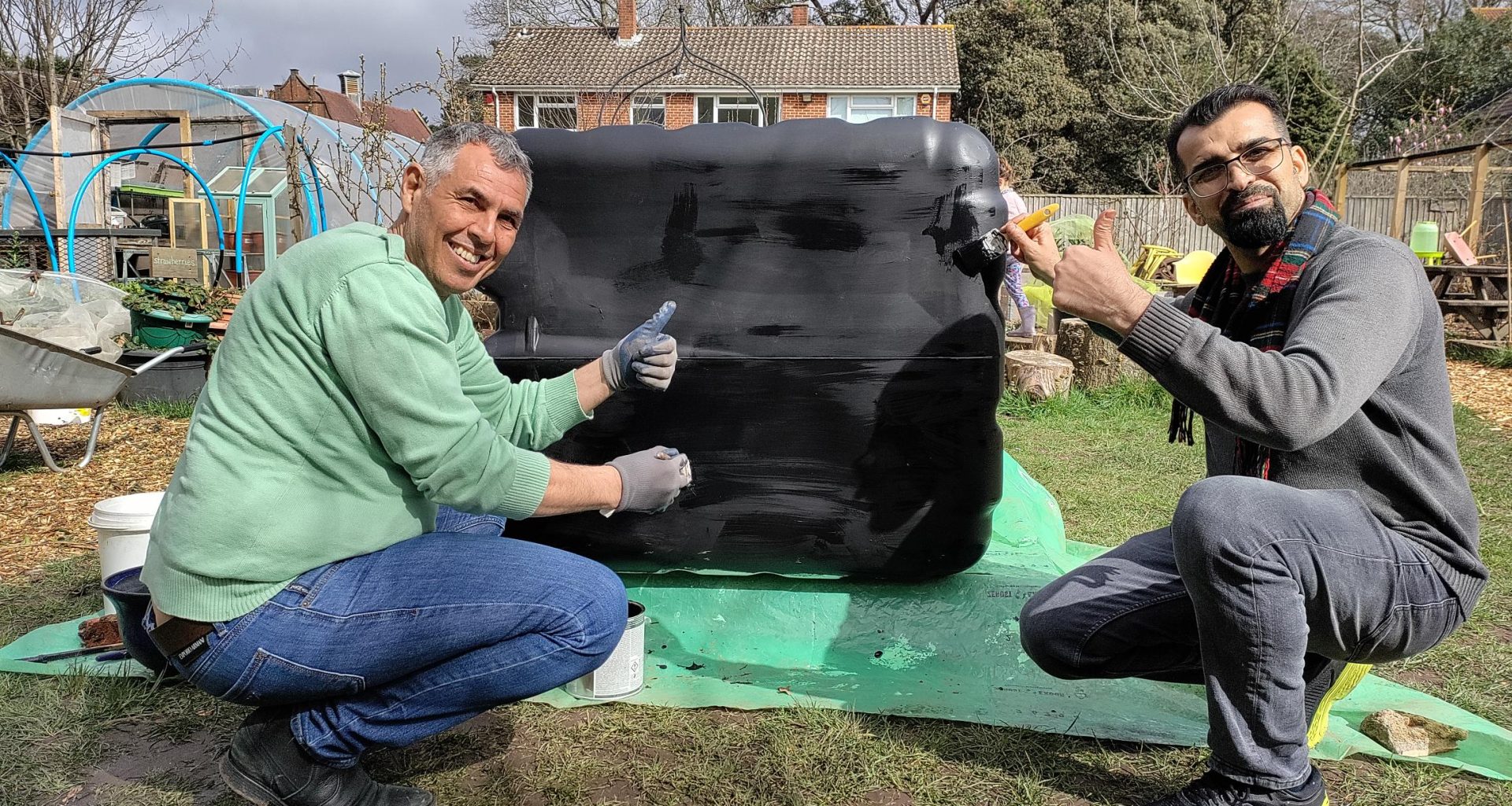Climate change. Global warming.
These are enormous issues, which are by their very definition world challenges with colossal consequences on the most macro of scales. The problems and their ramifications are so immense, that people are often left wondering what difference they can possibly make, both individually and as a community.
So, often we’re left asking the question: is there any point in doing anything at all when it appears that no one else, particularly multinational corporations and even state nations, seem to be taking climate change seriously or doing their part?
However, a number of community groups, networks and enterprising individuals in Bournemouth and across Dorset and Hampshire are taking it upon themselves to seize the initiative and start combatting climate change on a local level. These organisations are taking creative approaches to targeting the major causes identified by UN Environment Programme (UNEP), including transport, food and waste, energy and deforestation.

Seen by some as dangerous and deprived, and by others as an epicentre of creativity and diversity, Boscombe is undeniably one of the most urbanised areas in Dorset. Away from the bustling pedestrianized shopping centre, deep in the maze of Boscombe’s winding back streets, hiding in the shadow of the spire of St Clements Church, is the appropriately named Secret Garden. Home to Grounded Community. Michael French is the charity’s project coordinator who strives to give local residents access to healthy, nutritious hand grown fruit and vegetables, redistribute surplus food, and create local networks which collaborate to cut out the climate change contributing conglomerates.
“This a closed loop local system of collecting waste, turning that into compost, growing food with the compost and then giving the food back out to the community,” French says. “Little shops and bigger supermarkets provide some of their waste for surplus and we’ve got a box scheme where the surplus goes out to people. Weekly, we deliver about 100 boxes to local residents as well as foraged and collected foods. Moving into something bigger, we run a social canteen which is a community meal twice a week. We’re making about 150 meals for local residents, and people have been coming together to eat. So it’s a whole cycle of production and cooking.”
The UN’s Environment Programme asserts to “Increase the availability and uptake of plant-rich diets, increase sustainable production and minimise food waste”.
Clearly, Grounded Community is utilising the small green space in the midst of this urban setting, in order to do exactly what the UNEP is seeking to achieve. They are enhancing diets in a deprived area, through sustainable production methods which minimise both pollution and waste.
“Small Organic Growing spaces, are the only way really that are sustainable to feed the planet in long term and our bigger agricultural systems are not sustainable,” says French, “food is life, and food is also money.”

Dorset Climate Action Network (DCAN) are another organisation taking steps to preserve the natural environment so synonymous with the region. This collaborative network connects groups and individuals across the county, who share the aim of cutting carbon emissions in a significant and urgent manner. Vicki Elcoate, one of the team’s coordinators, liaises between the organisation’s different sub groups which have different focuses including energy, land use, waste and transport. One of DCAN’s biggest ongoing projects is ‘The Great Big Dorset Hedge’:
“Hedges actually lock up a huge amount of Carbon in their root systems plus they promote biodiversity through the wildlife corridors,” Vicki says. “The original idea was to create a continuous hedge the length of Dorset, but that might be impractical because you need landowner’s permission and so forth. But the ambition is huge and if you get communities engaged and working on the hedges near to them you could cover an enormous area.”
With UNEP’s stated intention to, “restore 150 million hectares of forests and other landscapes by 2020 and 350 million hectares by 2030,” initiatives such as ‘The Great Big Dorset Hedge’ represent another local response to a global call to arms. With Dorset host to the Jurassic Coast and other stunning natural geography, perhaps it’s visual projects, such as this, which can capture public imagination and begin to nurture the necessary community engagement.

For Susan Chapman, concerns about climate change and an urge to protect the planet are nothing new. She has been actively engaged with ‘Friends of the Earth’ and ‘Greenpeace’ since the 1970s. She also participates in numerous Bournemouth based groups, as well as standing as a Green Party candidate in 2015 and 2019. Chapman has retrofitted her home to make it more eco-friendly and pays close attention to her energy use and methods of transport. For her, the key to tackling climate change is holding those in power to account and applying pressure on them to take appropriate action on climate issues.
“They’re either in denial and they don’t like admitting it, or they really don’t understand how bad it is. The scientists are telling us the truth,” Susan says. “They’re not making things up. We’re seeing disasters happening all the time. And of course the press doesn’t report all these incidents. They praise activists in other countries but they do not praise Eco activists, they call them something dreadful. They might call me something but I don’t actually glue on, I don’t sit in roads, but I do go to council meetings and ask some questions which are very badly and disrespectfully answered.”
If climate change is to be overcome, it has to be taken seriously. Activists are often dismissed as extremists, but as Chapman states, “the scientists are telling us the truth.”
UN SDG Goal 13 states that disasters will increase by 40% by 2030. Activists play an important, if thankless and under-appreciated role, in highlighting issues while so many of carry on either oblivious or in denial of the facts.

‘Greening Ringwood’ was established in 2022 by residents of the historic market town, many of whom felt a collective responsibility for their generation’s contribution to climate change issues, and a shared sense of duty to help the next generation to tackle them. By working in partnership with the Town Council, and utilising expert energy and engineering advice, they have been answering UNEP’s commitment to “promote the installation of heat pumps, solar cells and heat storage technology”. Community initiatives such as litter picks and curb-side free-cycles have also helped to increase engagement and reduce waste and pollution. But Lindsay Andrews, one of the group’s founding members, feels Greening Ringwood’s real impact will be encouraging lifestyle changes amongst the community on a larger scale:
“Each little step is like a ripple in a pond,” Lindsay states. “If we all did small steps, we could make a huge difference. One person doing absolutely everything’s not going to have an impact. But if you get lots of people making small steps, that is what makes a difference.”
Despite the efforts of these contrasting climate change campaigners, the questions remain – can the micro really have an impact on the macro? Can local actions counter a global problem? Of course large scale participation and institutional buy-in will be required in the long run for these local initiatives to have global influence, but in the meantime, are the efforts of these community groups and charities all in vain?
Greening Ringwood, Grounded Community and the others featured here are changing the cultural climate in their communities, and these improvements, however small they may appear to be in an emergency of global proportions, are the small steps which might lead to big changes.








